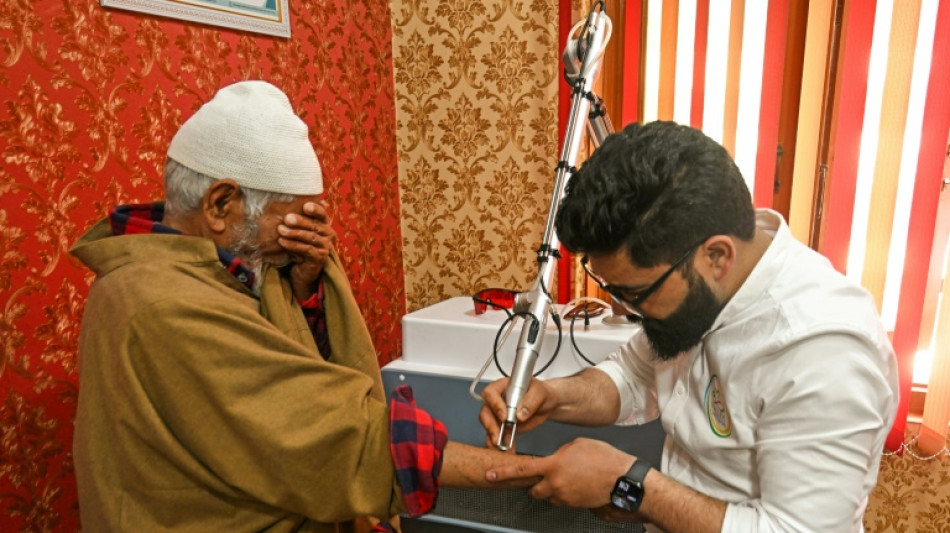
-
 EU wants key sectors to use made-in-Europe AI
EU wants key sectors to use made-in-Europe AI
-
De Minaur, Rinderknech through to Shanghai quarter-finals

-
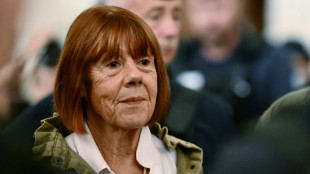 Gisele Pelicot says 'never' gave consent to accused rapist
Gisele Pelicot says 'never' gave consent to accused rapist
-
Thousands stranded as record floods submerge Vietnam streets
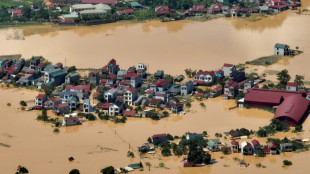
-
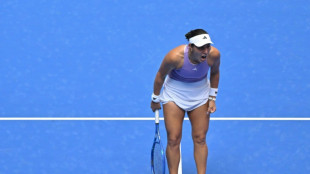 Sabalenka battles to keep Wuhan record alive, Pegula survives marathon
Sabalenka battles to keep Wuhan record alive, Pegula survives marathon
-
Trio wins chemistry Nobel for new form of molecular architecture
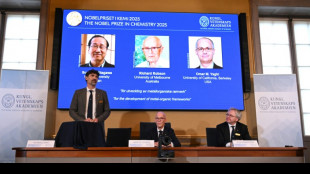
-
 Tarnished image and cheating claims in Malaysia football scandal
Tarnished image and cheating claims in Malaysia football scandal
-
Family affair as Rinderknech joins Vacherot in Shanghai quarters

-
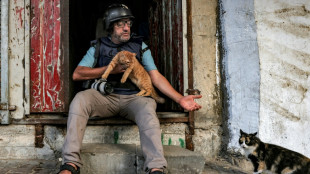 New documentary shows life in Gaza for AFP journalists
New documentary shows life in Gaza for AFP journalists
-
Tennis stars suffer, wilt and quit in 'brutal' China heat
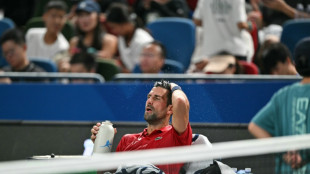
-
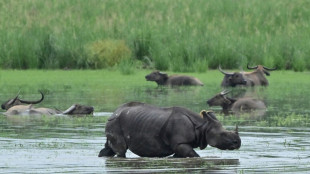 Wildlife flee as floods swamp Indian parks
Wildlife flee as floods swamp Indian parks
-
Record flooding hits Vietnam city, eight killed in north
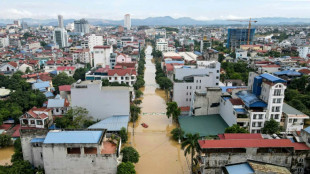
-
 Battling cancer made Vendee Globe win 'more complicated', says skipper Dalin
Battling cancer made Vendee Globe win 'more complicated', says skipper Dalin
-
England, Portugal, Norway closing in on 2026 World Cup

-
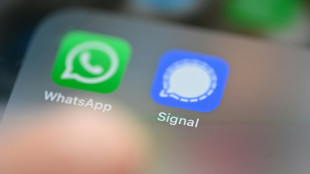 Child protection vs privacy: decision time for EU
Child protection vs privacy: decision time for EU
-
Bear injures two in Japan supermarket, man killed in separate attack
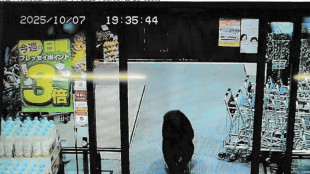
-
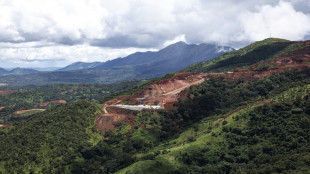 In Simandou mountains, Guinea prepares to cash in on iron ore
In Simandou mountains, Guinea prepares to cash in on iron ore
-
Morikawa says not to blame for 'rude' Ryder Cup fans

-
 Far right harvests votes as climate rules roil rural Spain
Far right harvests votes as climate rules roil rural Spain
-
'Return to elegance': highlights from Paris Fashion Week

-
 Britain's storied Conservative party faces uncertain future
Britain's storied Conservative party faces uncertain future
-
New Zealand's seas warming faster than global average: report

-
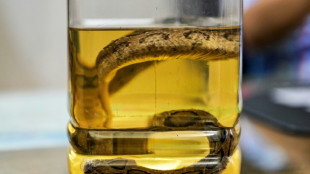 Snakebite surge as Bangladesh hit by record rains
Snakebite surge as Bangladesh hit by record rains
-
Yankees deny Blue Jays playoff sweep as Mariners beat Tigers

-
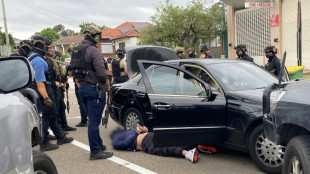 Australia police foil 'kill team' gang hit near daycare centre
Australia police foil 'kill team' gang hit near daycare centre
-
US, Qatar, Turkey to join third day of Gaza peace talks in Egypt
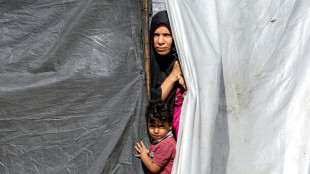
-
 Gold tops $4,000 for first time as traders pile into safe haven
Gold tops $4,000 for first time as traders pile into safe haven
-
Indian garment exporters reel under US tariffs
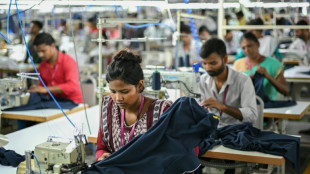
-
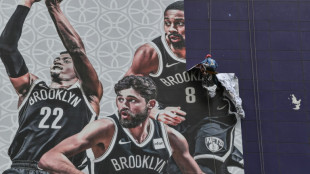 NBA back in China after six-year absence sparked by democracy tweet
NBA back in China after six-year absence sparked by democracy tweet
-
Energy storage and new materials eyed for chemistry Nobel
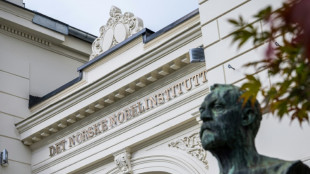
-
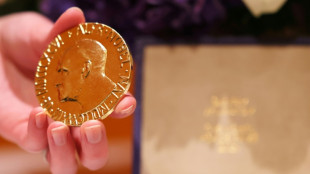 Trump unlikely to win Nobel Peace Prize, but who will?
Trump unlikely to win Nobel Peace Prize, but who will?
-
Qatar, Turkey to join third day of Gaza peace talks in Egypt
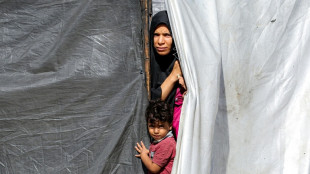
-
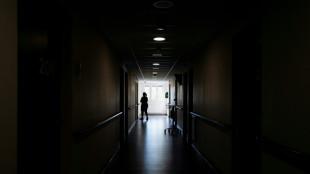 Study finds women have higher genetic risk of depression
Study finds women have higher genetic risk of depression
-
Dolly Parton's sister calls for fan prayers over health issues

-
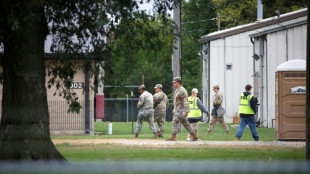 On Trump's orders, 200 troops from Texas arrive in Illinois
On Trump's orders, 200 troops from Texas arrive in Illinois
-
Two bodies found, two missing after Madrid building collapse
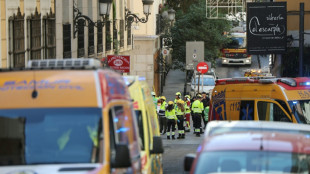
-
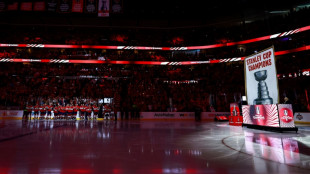 Panthers raise banner as NHL three-peat bid opens with win
Panthers raise banner as NHL three-peat bid opens with win
-
Nobel physics laureate says Trump cuts will 'cripple' US research
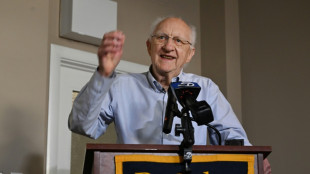
-
 UFC star McGregor suspended 18 months over missed drug tests
UFC star McGregor suspended 18 months over missed drug tests
-
Trump talks up Canada trade deal chances with 'world-class' Carney
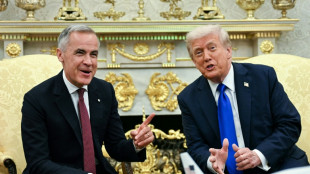
-
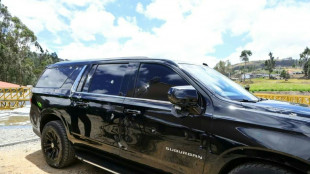 Ecuador president unharmed after apparent gun attack on motorcade
Ecuador president unharmed after apparent gun attack on motorcade
-
Lyon exact revenge on Arsenal, Barca thrash Bayern in women's Champions League

-
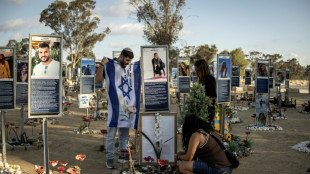 Trump says 'real chance' to end Gaza war as Israel marks attacks anniversary
Trump says 'real chance' to end Gaza war as Israel marks attacks anniversary
-
Gerrard brands failed England generation 'egotistical losers'

-
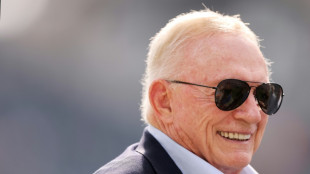 NFL fines Cowboys owner Jones $250,000 over gesture to fans
NFL fines Cowboys owner Jones $250,000 over gesture to fans
-
Bengals sign veteran quarterback Flacco after Burrow injury

-
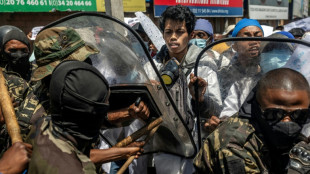 New prime minister inspires little hope in protest-hit Madagascar
New prime minister inspires little hope in protest-hit Madagascar
-
Is Trump planning something big against Venezuela's Maduro?
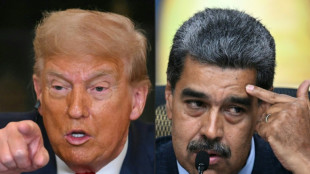
-
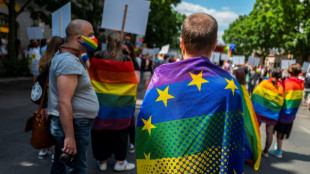 EU wants to crack down on 'conversion therapy'
EU wants to crack down on 'conversion therapy'
-
French sex offender Pelicot says man who abused ex-wife knew she was asleep
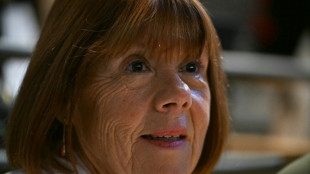

Fearing Indian police, Kashmiris scrub 'resistance' tattoos
Thousands in Indian-administered Kashmir with "resistance tattoos" including assault rifles inked to oppose New Delhi's authority have been lining up to scrub them from their bodies, fearing police retribution after a deadly attack on tourists last week.
Basit Bashir receives up to 100 people, mostly men, every day at his laser clinic in the main city of Srinagar, hovering swiftly over designs ranging from AK-47 rifles to Islamic symbols such as a crescent moon.
"I have safely removed AK-47 and similar type tattoos from the arms and necks of more than 1,000 young people using laser," Bashir told AFP at his clinic in the old quarter of Srinagar as he blasted high-intensity light pulses to break up the ink.
Muslim-majority Kashmir has been divided between India and Pakistan since their independence from British rule in 1947, with both governing the disputed territory separately and claiming it in its entirety.
That long-running conflict has shot back to attention after gunmen targeting tourists carried out the deadliest attack on civilians in a quarter of a century in the Himalayan territory, killing 26 men on April 22 in Pahalgam.
Indian police have issued wanted posters for three men accused of carrying out the Kashmir attack -- two Pakistanis and an Indian -- who they say are members of the Pakistan-based Lashkar-e-Taiba group, a UN-designated terrorist organisation.
India blames Pakistan and, while Islamabad denies any role, troops from the nuclear-armed neighbours have repeatedly fired at each other across the Line of Control, the de facto border in contested Kashmir.
"After Pahalgam, we have seen a rise in the number of people with a crescent or AK-47 tattoos coming in for removal," 28-year-old Bashir said.
One young man came in this week with an AK-47 tattoo after friends told him it was "better to get it removed" since the situation was "very precarious", he said.
- 'Fearful young' -
In Indian-controlled Kashmir, body tattoos have been a form of political expression, like graffiti, since an armed rebellion against Indian rule erupted in 1989.
Rebel groups -- largely crushed in recent years -- demand Kashmir's independence or its merger with Pakistan, and tens of thousands of people have been killed in the conflict.
But deeply held anti-India sentiment has remained.
Many who grew up during the violent uprising had their bodies inked with symbols expressing not just resentment towards Indian rule but also their religious identity.
Bashir, the laser technician, said he initially started erasing tattoos depicting Muslim religious symbols.
"They wanted the tattoos removed, believing it was prohibited in Islam, and wanted to be buried as pure after death," he said.
But others with pro-independence slogans started coming in big numbers after 2019, when New Delhi cancelled the region's partial autonomy and clamped down on dissent and protests.
Thousands were arrested and civil liberties were drastically curtailed.
Police and security forces increased surveillance following the 2019 change in the territory's status.
They punished political expression hinting at resistance or a reference to the disputed nature of Kashmir in any form -- even on social media.
"I started getting a stream of fearful young men and women seeking their tattoos to be safely removed," Bashir said.
On some days more than 150 people turned up at his clinic, prompting him to buy a new machine for a million rupees (nearly $12,000).
"Many of them told me their stories of being harassed by police for their tattoos showing any anti-India sentiment", he said.
- 'Interrogation' -
The rush for having tattoos erased for fear of police reprisal has now spawned more than 20 other laser clinics across Srinagar, charging between 300 and 3,000 rupees ($3.50-$35) for the job, depending on the tattoo's size.
Sensing the rush, Bashir said he had trained in India's Gujarat state to learn how to erase tattoos safely.
"People come from all across Kashmir," Bashir said. "Many have told me their horrific stories of facing police interrogation for their tattoos."
Many were hesitant, fearful of speaking about younger motivations for the tattoo.
"I get rebuked by my family and school friends all the time for my tattoos," a student said, clenching his teeth during the painful procedure.
"I can't deal with it anymore, that is why I came here".
Another, a lawyer hoping to find a match for marriage, said she had an assault rifle tattooed on her arm during the 1990s when the armed rebellion was at its peak.
"That is what I had seen all around me during my childhood -- soldiers and militants wielding and firing from their AK-47s," she said, declining to be identified for fear of reprisal.
"Everything has changed since then," she said, showing the blisters that now replaced the rifle after two rounds of laser.
"These things are trouble."
C.Stoecklin--VB
